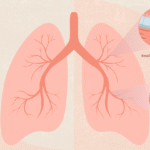No one should stop taking a medication without a provider’s guidance, but you can stop antidepressants safely under their care. With the right plan, you can stop taking antidepressants with minimal symptoms.
“Everyone’s experience is unique. It’s essential to taper medications with personalized guidance from your healthcare provider, rather than following a one-size-fits-all approach,” says Ritu Goel, MD, an integrative psychiatrist in Long Beach, California. But in general, these expert-backed tips can make your transition away from antidepressants a smooth one.
1. Take It Slow
To stop antidepressants safely and avoid ADS symptoms, make a plan with your provider to taper them slowly. You’ll gradually take a smaller and smaller dose, following your provider’s instructions.
Exactly how long this takes will vary from person to person. “The longer someone has been on an antidepressant, the more gradual the taper should be,” says Dr. Batista, who typically recommends a slow taper over weeks to months. “The nervous system adjusts to the presence of medication over time, and a faster taper can provoke stronger withdrawal symptoms.”
2. Stay in Touch With Your Provider
Your provider won’t give you a taper schedule and leave you to it — they will want to check in with you regularly to help you manage any physical and emotional changes you’re experiencing. “There is an art more than a science to distinguishing between withdrawal and relapse, and that kind of judgment call is easier to make when a professional is tracking your progress closely,” says Batista.
3. Prioritize Self-Care
As you taper antidepressants, take extra care of yourself. “Good sleep hygiene and self-care practices such as mindfulness, regular physical activity, and balanced nutrition can significantly ease the process of reducing antidepressant use,” says Goel.
4. Line Up Plenty of Support
Lean on your friends and family as you wean yourself off antidepressants. The people closest to you may be able to pick up on any emotional or behavioral changes you’re experiencing.“Emotional support and accountability are essential during this transition,” says Goel.
Read the full article here




